For more information on the SEP election campaign, visit the election website: socialequality.com
On Tuesday, February 28, Socialist Equality Party candidate Jerry White visited the Eugene V. Debs Museum in Terre Haute, Indiana. White’s campaign comes 100 years after Debs, the first major figure of American socialism, won nearly 1 million votes in the 1912 election, in which he challenged Democrat Woodrow Wilson, Republican William Howard Taft, and Progressive Theodore Roosevelt.
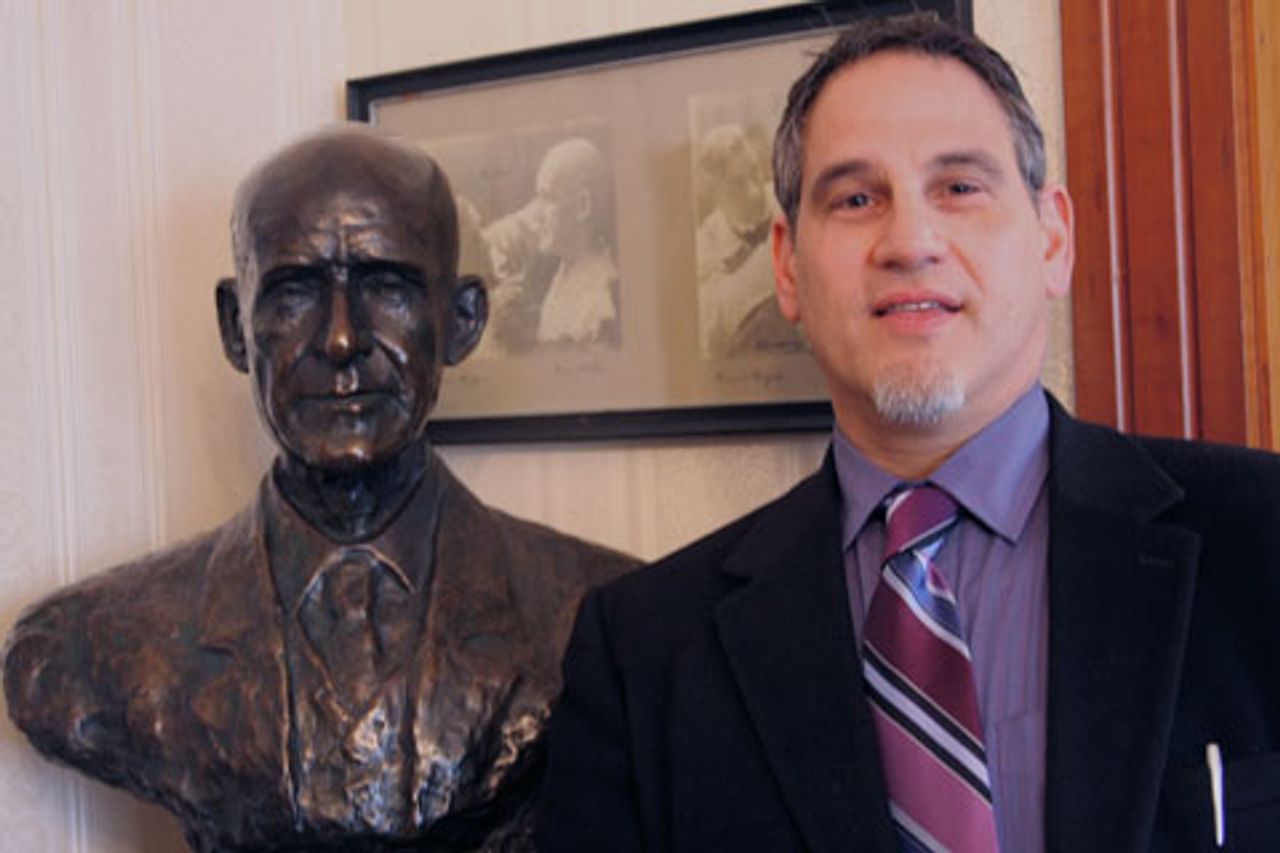 One of many statues of Debs. He received nearly a million votes when he ran for US President in 1912. In 1920 he won nearly a million votes while in prison for opposing the First World War. He was jailed for giving his famous anti-war speech in Canton, Ohio.
One of many statues of Debs. He received nearly a million votes when he ran for US President in 1912. In 1920 he won nearly a million votes while in prison for opposing the First World War. He was jailed for giving his famous anti-war speech in Canton, Ohio.The museum is located in the old Debs home in Terre Haute, a city of 60,000 in southwest Indiana. White was given a tour of the home by Karen Brown, Museum Director and Administrative Assistant to the Debs Foundation. The museum, which is undergoing renovation, receives around 1,500 visitors each year. Despite having won a mass following in the early decades of the 20th century, Brown said, Debs is not a well-known figure today and is rarely taught in high school.
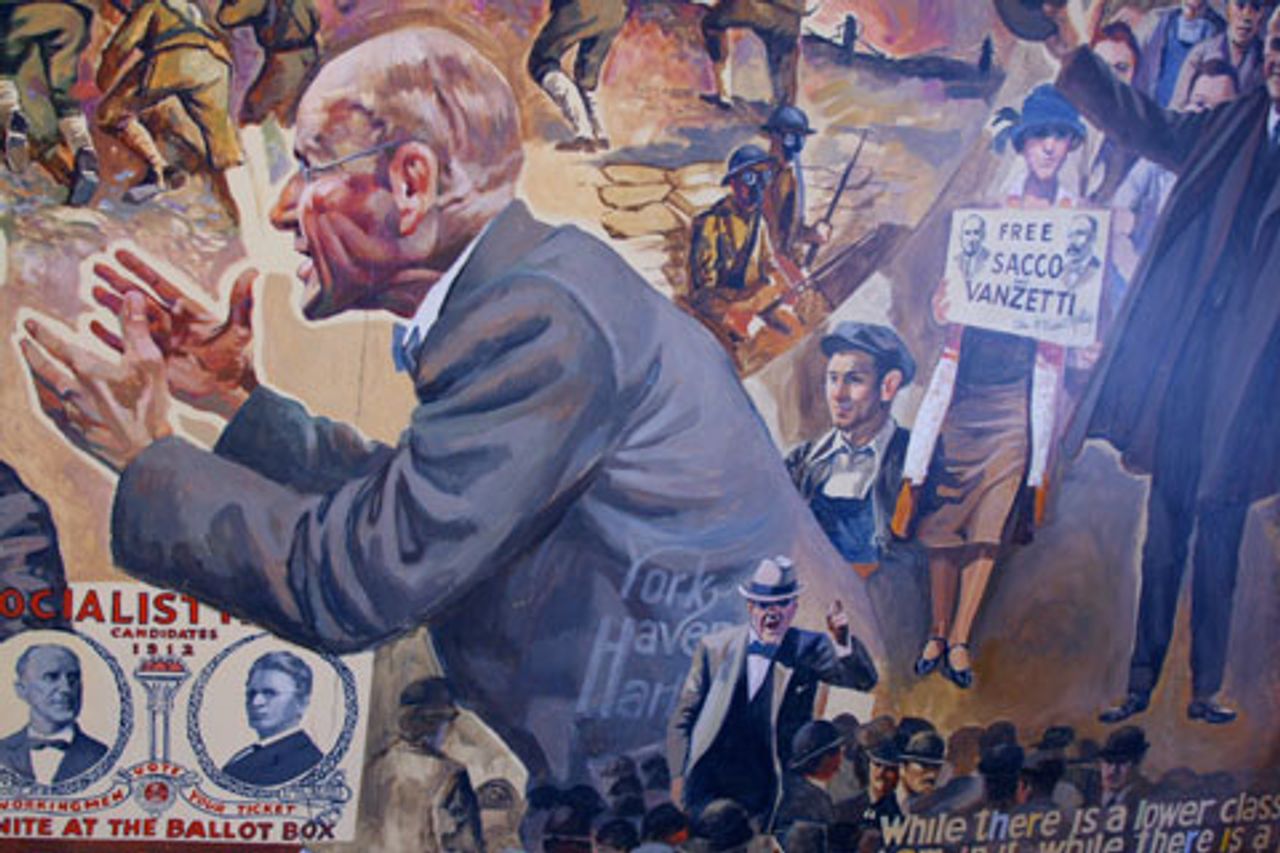 Murals painted on the walls in the attic of the home
Murals painted on the walls in the attic of the homeThe museum, opened in 1965, is a worthy destination for workers and youth seeking to learn more about Debs and the early history of American socialism. Many of his letters and writings, as well as Socialist Party documents like the party’s 1912 election platform, were digitized and are now available through the Indiana State University library web site.
On display at the home were autographed copies of Upton Sinclair’s The Jungle, Sinclair Lewis’ Babbitt and a work by Emma Goldman. Also on display is Debs’ copy of Karl Marx’s Capital, which he read in jail after being incarcerated for leading the Pullman strike of 1894. Also included were correspondence with writers Carl Sandburg and Theodore Dreiser, the latter also a native of Terre Haute.
After visiting the Debs home, Jerry White told the WSWS, “So much has been done to deprive the working class of any knowledge of its own history and of heroic struggle waged a century ago by Debs and other early socialist pioneers. The photographs, books and other material on display illustrate the powerful hearing international socialism, Marxism and the Russian Revolution won in the American working class.
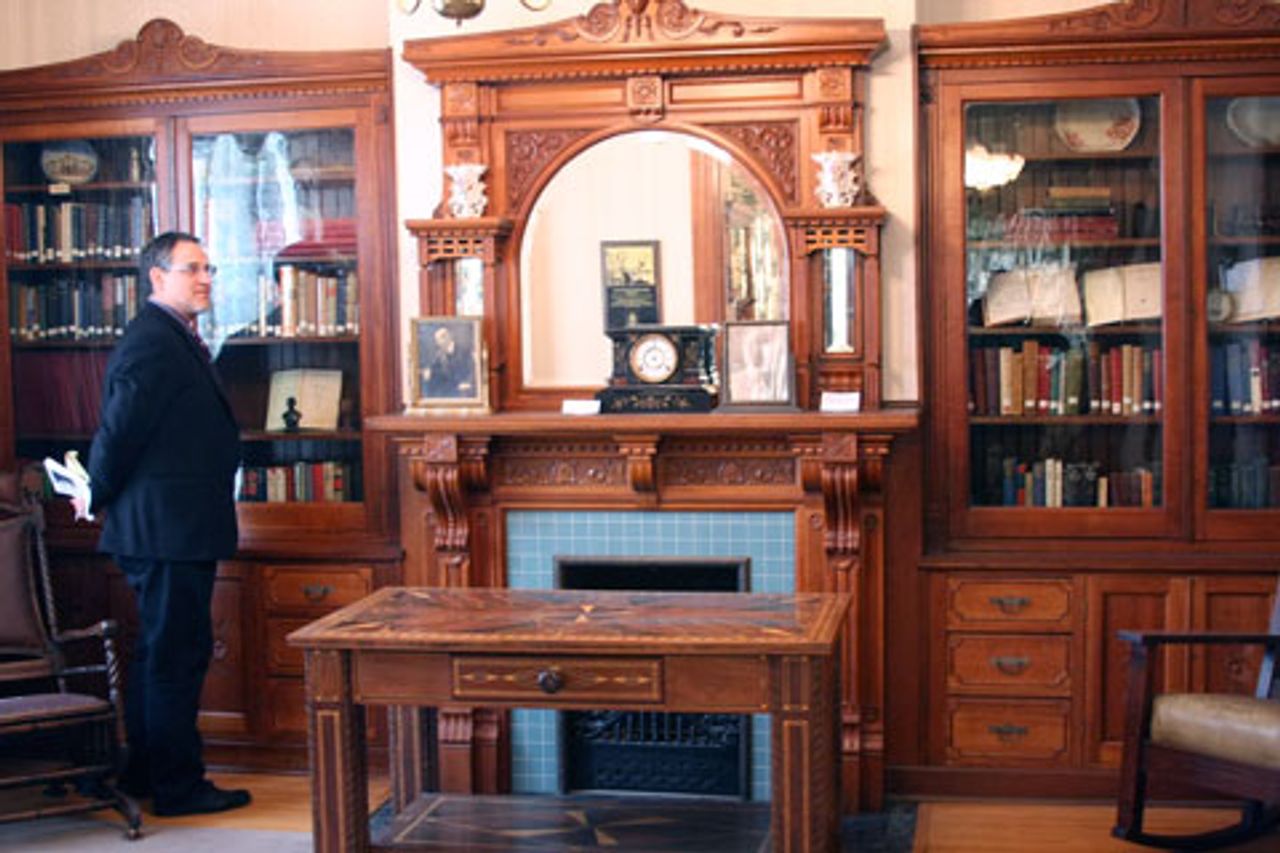 White in the beautiful study of Debs home
White in the beautiful study of Debs home“With workers around the world once again confronting the breakdown of world capitalism and the danger of new world wars, these rich traditions of struggle must be revived and fused with an international socialist strategy for the 21st Century. That is aim of our election campaign.”
Eugene Debs
Eugene Victor Debs embodied great revolutionary traditions. Born to French immigrants, Debs was raised on the books of the French romantics and philosophes—he was named after the novelists Eugene Sue and Victor Hugo. A great grandfather had been a member of the French National Assembly in 1789 and then a minor figure in the Alsatian revolutionary government. Yet it was the legacy of the American Revolution and the Civil War—Debs was 10 years old when Lincoln was assassinated—that most formed the thinking of the young man. According to Debs’ biographers, the emergence of modern industrial capitalism and with it the formation of modern class society clashed with Debs’ vision, handed down from Jefferson and Lincoln, of a republican commonwealth based on equality and the honor of labor.
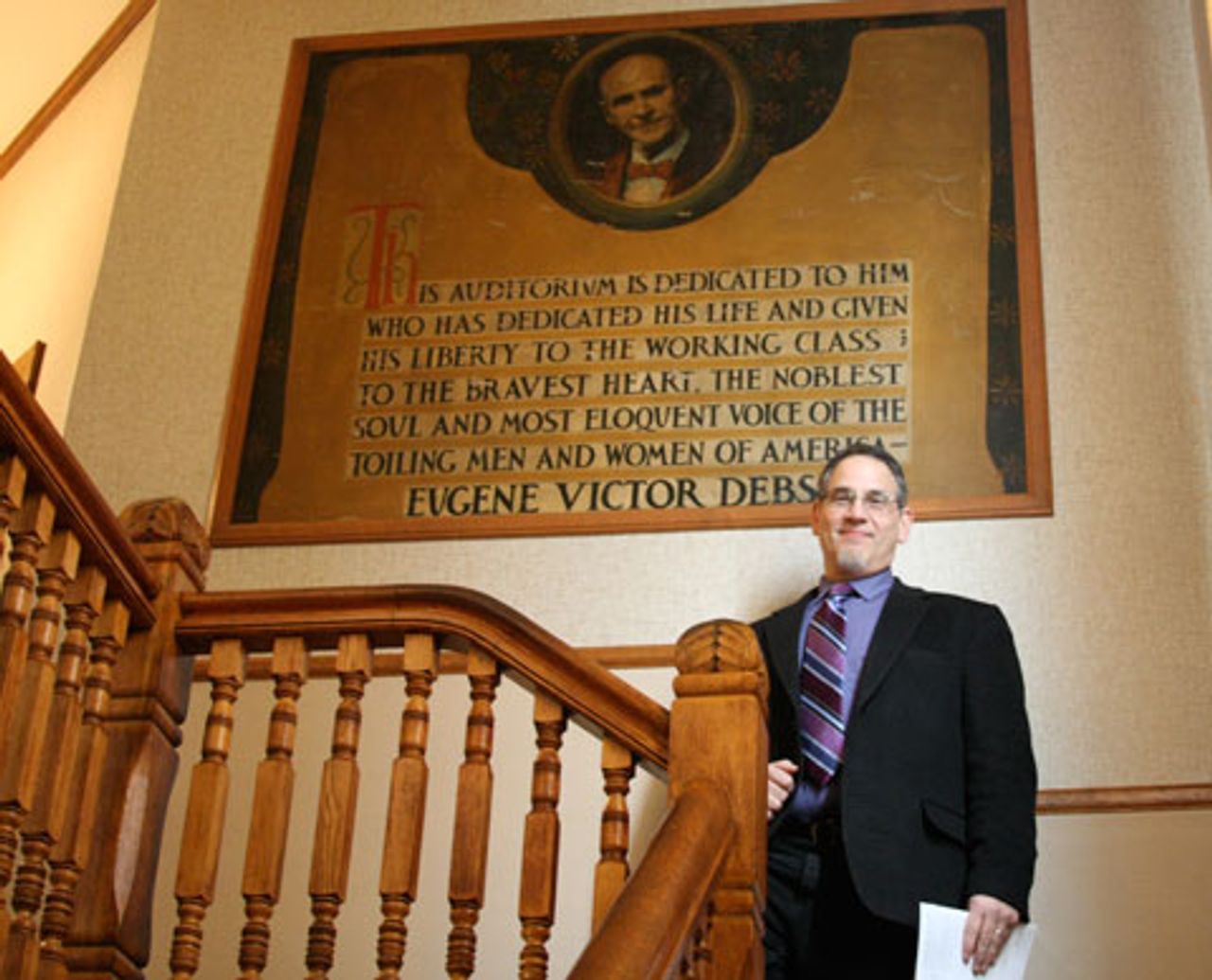 The second floor stairway landing where there is a dedication to Debs
The second floor stairway landing where there is a dedication to DebsDebs went to work on the railroad at age 14, and as a young man he became involved in the railway brotherhoods that were precursors to modern trade unions. He never completed high school, but his skill as a leader secured for him positions in local politics and brotherhoods. He was a participant and an observer, but not a leader, of the epic nation-wide strikes of 1877 and 1886. Known respectively as the Great Upheaval and the Great Uprising, these strikes heralded the emergence of the working class as a powerful social force—and the ferocious violence of the American ruling class to stop it.
Debs was the major figure of the great Pullman Strike of 1894. This was the first large-scale strike of a modern industrial union, the American Railway Union, which Debs headed. The administration of President Grover Cleveland used an injunction to break the strike, and then sent out the United States Army to Chicago to deal with the strikers. Thirteen workers were killed and dozens more injured in the fighting.
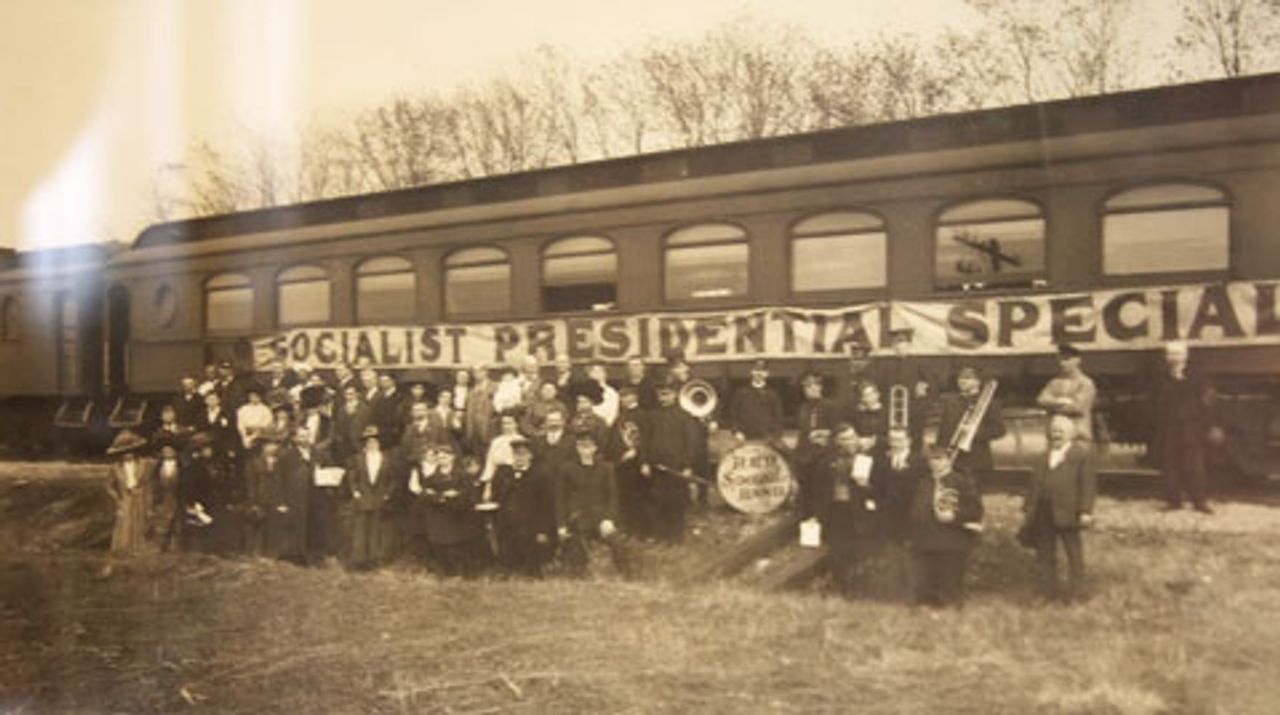 Photo of the train Debs used in one of his five campaigns for president, complete with a band
Photo of the train Debs used in one of his five campaigns for president, complete with a bandDebs’ refusal to back down during Pullman earned him the hatred of the ruling class. The New York Times described him as “an enemy of the human race,” but Debs wore such accolades from the capitalist press as a badge of honor. Cleveland saw to it that Debs and other strike leaders were jailed for defying the injunction. A young and then-obscure corporate attorney represented Debs in the trial: Clarence Darrow.
It was in prison that Debs encountered the writings of Marx and first began to delve into the ideas of socialism. While his politics and understanding of socialism were to evolve over time, Debs determined after the Pullman experience that trade union militancy would never be enough to fight the capitalists. A political struggle would also be necessary. From this position he never wavered. “Get out of the capitalist parties!,” Debs exhorted workers. “You do not belong there.”
This conception made Debs the lifelong enemy of American Federation of Labor (AFL) head Samuel Gompers, who sought to lock workers into what was called “bread and butter trade unionism” and banish any conception of politics from their heads. It led Debs to face accusations of “dual unionism” and to join with “Big Bill” Haywood and Daniel De Leon to launch in 1905 the revolutionary-syndicalist union, the Industrial Workers of the World (IWW) at the Continental Congress of the Working Class in Chicago.
By virtue of his stature as a leader of the working class, Debs quickly emerged as the most important public figure of the American Socialist Party, founded in 1901. The socialist movement in America before World War I was heavily influenced by reformist “sewer socialists” like Victor Berger of Milwaukee and Morris Hillquit of New York—whom Leon Trotsky aptly called “the Babbitt of Babbitts … the ideal Socialist leader for successful dentists.” However, Debs was always “with those in the party who stood for revolutionary policy” in the words of James P. Cannon, the leader of the Socialist Workers Party.
Trotsky, who knew Debs personally from his time in New York City, remembered him as a “sincere revolutionary,” and Lenin called Debs “the real representative of the revolutionary proletariat.”
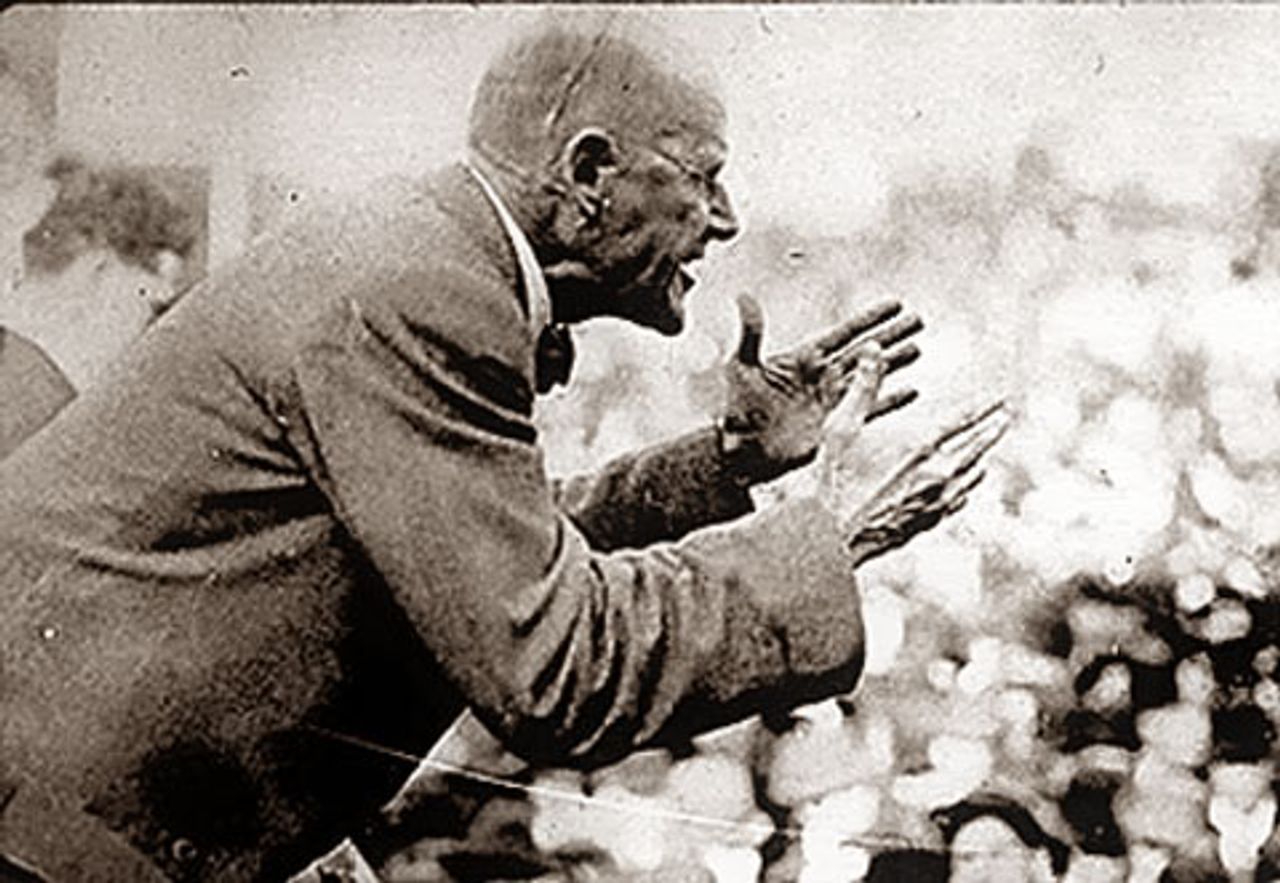 Debs gives his anti-war speech in Canton, Ohio
Debs gives his anti-war speech in Canton, OhioThe socialist movement recorded its greatest electoral success (in terms of the percentage of votes cast) in 1912, when Debs won 6 percent. The socialist challenge, combined with the reemergence of major industrial strikes, convinced sections of the American ruling class it would be best to offer certain reforms in order to head off revolution and to better pursue imperialist aims abroad. This “progressive” outlook was shared by all three of Debs’ opponents in the 1912 election, Wilson, Roosevelt, and Taft.
When Wilson succeeded in dragging the US into World War I in 1917, just as the Russian Revolution was in the process of knocking Russia out of the war, Debs courageously opposed the capitalist conflagration.
In open defiance of the reactionary Sedition Act, Debs delivered a fiery denunciation of the war in June, 1918, in Canton, Ohio. Stating that he “would rather a thousand times be a free soul in jail than to be a sycophant and coward in the streets,” Debs declared his solidarity with Lenin and Trotsky and denounced the “Wall Street Junkers.” At his court sentencing for delivering this speech, Debs told the court, “while there is a lower class, I am in it,” and did not ask for mercy or leniency.
The elderly man was put in federal prison in Atlanta and there he stayed until 1921, when Republican President Warren Harding issued a commutation—but not a pardon. While in prison the Socialist Party—then splitting apart into its revolutionary and reformist constituencies— nominated Debs one last time for president. He again gained over 900,000 votes, this time from behind bars.
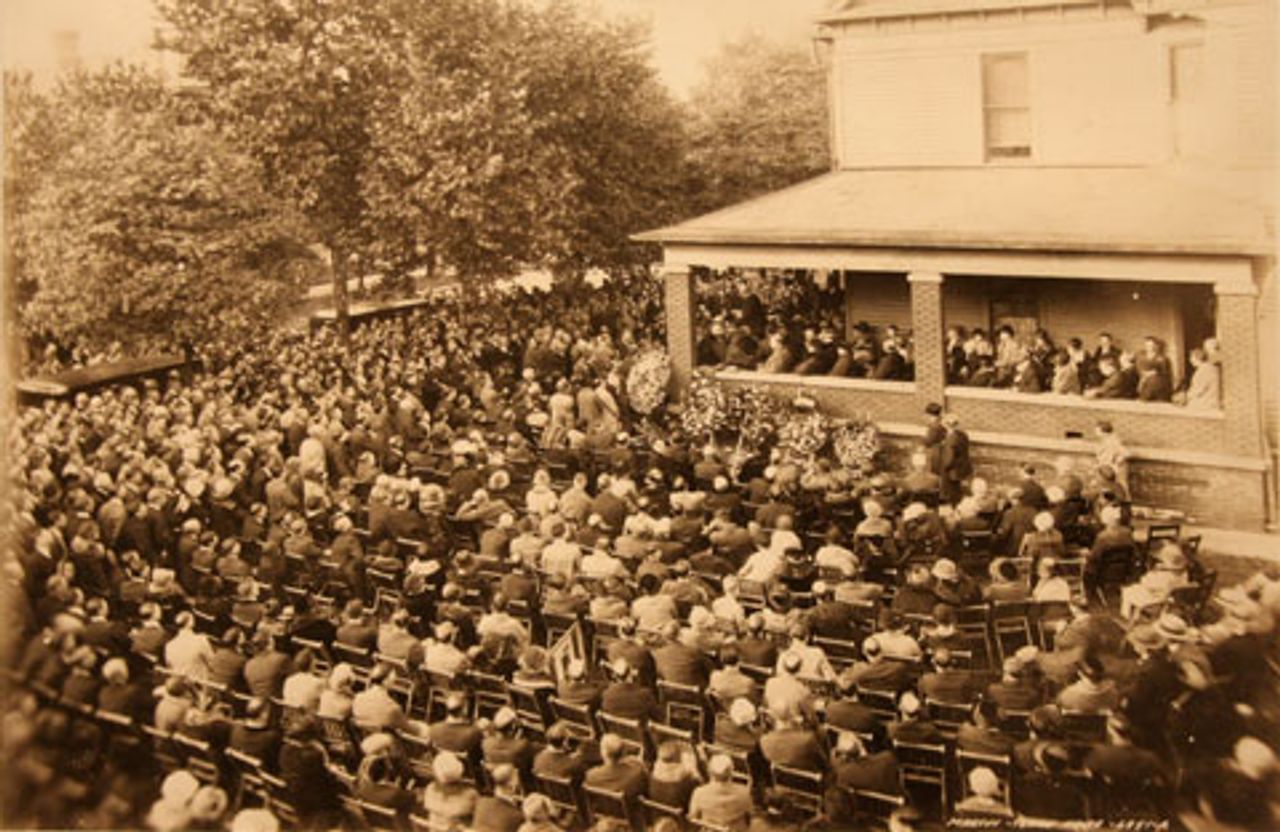 Photo of the memorial service at his home when Debs died in 1926
Photo of the memorial service at his home when Debs died in 1926 Debs had an unparalleled ability to draw workers together. There was no other truly national figure of the early socialist movement. While this led Debs to compromise with conservative elements, he never lost sight of the fact that he spoke for the entire working class—and to it through his famed oratory.
Skilled workers, trade unionists, coal miners and farmers flocked to Debs’ meetings by the thousands. Photos of Debs were reportedly common on the wall of Jewish immigrant homes; “he was the first who had come from the ranks of the American workers, holding out his hand and saying, ‘I am your brother,’” according to one recollection.
When Debs died in 1926, 10,000 people gathered in Terre Haute for the funeral, which was held on the front porch of his home, now the Debs museum.
